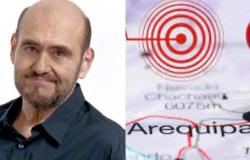In Spain, the time ofsleep is noticeably different from that of the rest of Europe. While in many European countries dinner is served between 6 and 8 p.m., in Spain it is common have dinner around the 10 … of the night, what significantly delays bedtime. However, this habit can have negative consequences. In that sense, a recent study published in the journal ‘Psychiatry Research’ revealed that People who regularly go to bed after 1 a.m. are more likely to suffer from mental health disorders such as depression and anxiety compared to those who go to bed earlier.
The study, which compared chronotype, the preferred sleep time, with the actual sleep behavior of almost 74,000 adults from the United Kingdom, found that night owls aligned with their chronotype had between 20% and 40% more likely to receive a mental health disorder diagnosis compared to those who had an earlier sleep schedule.
Study co-author Jamie Zeitzer, a professor in the department of psychiatry and behavioral sciences at Stanford University, was surprised by the results. “They were not at all what we expected,” he told ‘Fox News’, to which he added: “We spent more than a year trying to disprove our findings, but we couldn’t find an alternative explanation.” Zeitzer suggests that the isolation associated with nocturnal behavior could be a factor and recommends night owls try adopt an earlier routine to adjust your sleeping patterns. “Biologically speaking, it’s a lot like a rubber band: you take a day off and you get back to where your body wants to be,” he explained.
Limitations of the study
However, the study has some limitations, according to Dr. Indira Gurubhagavatula, professor of medicine in the division of Sleep Medicine at the University of Pennsylvania. Speaking to the American media ‘Huffpost’, she noted that the UK Biobank participants were mostly middle-aged or older Caucasiansand that the determination of the chronotype was based on a single question, although validated. “Typically the way we assess morningness or eveningness is with a much more comprehensive questionnaire that has much more detailed questions,” she confessed. Furthermore, the researchers relied on data of mental health diagnoses compiled by doctorswhich can be inaccurate either incompleteconcluded Gurubhagavatula.





